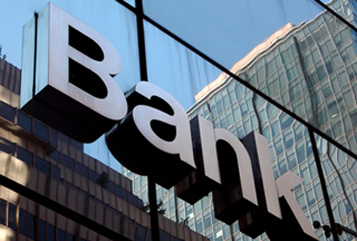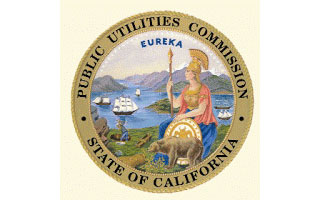U.S. Communications Agency Unveils Internet Privacy Proposal
by David Shepardson, Reuters

The plan would require broadband providers to obtain consumer consent, disclose data collection, protect personal information and report breaches. Broadband providers currently collect consumer data without consent and some use that data for targeted advertising, which has drawn criticism from privacy advocates. The proposal … does not prohibit Internet providers from using or sharing customer data, for any purpose. The FCC would not extend the broadband provider privacy rules to sites such as Twitter, Google or Facebook. Read More ›
Proposed FCC Rules Would Limit How Internet Service Providers Can Use Your Data
by Jim Puzzanghera, Los Angeles Times

“Simply by using the Internet, you have no choice but to share large amounts of personal information with your broadband provider,” FCC Chairman Tom Wheeler said in an article on the Huffington Post. “You have a right to know what information is being collected about you and how that information is being used. … If you have a mobile device, your provider can track your physical location throughout the day in real time. … The bottom line is that it’s your data,” he said. “How it’s used and shared should be your choice.” Read More ›
Appeals Court Shuts Down For-Profit College Industry’s Effort To Avoid Accountability
by Chris Morran, Consumerist

“It would be strange for Congress to loan out money to train students for jobs that were insufficiently remunerative to permit the students to repay their loans,” concluded the appeals panel. “And it would be a perverse system that, by design, wasted taxpayer money in order to impose crippling, credit-destroying debt on lower-income students and graduates.” Read More ›
Online Lenders Drawing More Scrutiny By Regulators
by James Rufus Koren, Los Angeles Times

Both the state Department of Business Oversight and the [U.S. Consumer Financial Protection Bureau] have turned their attention to so-called marketplace or peer-to-peer lenders — online firms that offer loans to consumers and small businesses, then sell those loans to investors. There are now dozens of such lenders, which use online applications and speedy underwriting systems to issue loans. … That growth has attracted the attention of consumer advocates, who are concerned about how lenders protect customer data and whether they comply with state and federal lending laws. Read More ›
FCC Proposes Expanding ‘Obamaphone’ To Internet
by Tom Risen, U.S. News & World Report

FCC Chairman Tom Wheeler on Tuesday explained his proposal to expand the Lifeline program aims to assist some of the 64 million Americans who have difficulty affording Internet access. … “Internet access has become a pre-requisite for full participation in our economy and our society, but nearly one in five Americans is still not benefitting from the opportunities made possible by the most powerful and pervasive platform in history,” [Wheeler wrote.] Though often called “Obamaphone” by its critics, the Lifeline program was launched in 1985 by Ronald Reagan’s administration and offered a $9.25-per-month subsidy to help low-income Americans pay for landline phones. Read More ›
FCC Cracks Down On Verizon Wireless For Using ‘Supercookies’
by Andrea Peterson, Washington Post

The practice came to the public’s attention in late 2014, when it received criticism from privacy advocates who called the code a “supercookie” because it was almost impossible for users to avoid. … Last January, researcher Jonathan Mayer revealed evidence that others could hijack the supercookie for their own purposes: An online advertising company called Turn was using the codes to help follow people around online, he said. Turn used the supercookie to “respawn” its traditional cookies — even if users took steps to protect their privacy by removing the cookies. Read More ›
CFC, Other Groups Urge FCC To Protect Personal Privacy From Internet, Telecom and Cable Companies

The letter to Federal Communications Commission (FCC) Chairman Tom Wheeler rejects the looser regulatory framework advocated by broadband Internet service providers (ISPs). The ISPs’ approach relies in large part on existing Federal Trade Commission rules that have done little to restrain ISPs’ aggressive mining of their subscribers’ data for marketing purposes, the consumer and privacy groups warn. ISPs such as Verizon, Comcast and Cox can exploit the personal data they amass on Web surfers, cable and streaming television viewers and smartphone users – not just marketing to their own customers but also selling the information to third parties. Read More ›
Hey, Siri And Alexa: Let’s Talk Privacy Practices
by Elizabeth Weise, USA Today

The worry is that this trickle of helpful adjuncts could become a flood of invasive devices bent on listening and learning from everything we say around them. … Could there come a day when talking about buying a faucet in the kitchen could be overheard by your TV in the living room, changing the types of commercials that show up when you’re watching your favorite program the next night? … One concern has been that law enforcement might subpoena sound files recorded in a home when investigating a crime, or that they could be discoverable in a divorce proceeding. Read More ›
Get Ready For A World Of Hackable Cars
by Elizabeth Weise, USA Today
“If you’ve got GPS or Bluetooth access or a WiFi hotspot in your car — which is coming — there’s a wide range of hacks for getting in,” [one expert said.] … The convergence between connected cars and nefarious hackers (as opposed to research hackers) is coming, say [others. … One expert] says he does caution friends to avoid the dongles popular with some auto insurance companies that allow them to monitor a car’s actions. It’s one thing to trust Ford or Chevrolet. But with those, he said, “you’re not even trusting your insurance company, your’e trusting whoever they bought the dongle from.” Read More ›
These Are U.S. Consumers’ Top 5 Complaints
by Krystal Steinmetz, Money Talks News
Debt collection gripes made up 29 percent of the complaint calls to the FTC last year, while 16 percent of the complaints were related to identity theft. … “We recognize that identity theft and unlawful debt collection practices continue to cause significant harm to many consumers,” Jessica Rich, director of the FTC’s Bureau of Consumer Protection, said in a statement. “Steps like the recent upgrade to IdentityTheft.gov and our leadership of a nationwide initiative to combat unlawful debt collection practices are critical to our ongoing work to protect consumers from these harms.” Read More ›
Overdraft Practices Continue To Gut Bank Accounts And Haunt Customers
by Michael Corkery and Jessica Silver-Greenberg, New York Times

The nation’s big consumer banks collected about $11 billion in overdraft fees last year, which accounted for 8 percent of their profits, according to a report by the Consumer Financial Protection Bureau. … Many customers end up confused by how overdrafts work. In their marketing materials, for example, banks present the choice of whether to sign up for overdraft as an offer of “overdraft protection” — a feature many customers thought would automatically deny transactions and shield them from incurring the fees at all. In reality, it is a service authorizing the banks to charge the overdraft fees. Read More ›
Judge Asked To Fine PG&E $112 Million For Carmel Blast
by Jaxon Van Derbeken, San Francisco Chronicle

“PG&E should be reminded that the commission and its staff are not operating on a ‘need-to-know’ basis with PG&E,” [Ed Moldavsky, an attorney for CPUC’s safety division,] wrote in his recommendation. … “PG&E has a duty to disclose even troubling facts to the commission,” Moldavsky wrote. “PG&E’s failure to do so makes a mockery out of the regulatory compact.” … “How many times does the corporate mule need to be hit over the head with a 2-by-4 to get its attention?” [Carmel] city attorneys asked. … “Yet here we are again. The facts are clear, and the law is clear.” Read More ›
Federal Efforts In Data Privacy Move Slowly
by Natasha Singer, New York Times

After Congress failed to take up baseline consumer privacy legislation, the [Obama] administration issued its own discussion draft of a bill last year. … Consumer advocates are not holding their breath, although some are turning to the states to enact consumer privacy protections for technologies like facial recognition, voice-controlled smart TVs and social media services. “An individual should have control over their information,” said Jeffrey Chester, the executive director of the Center for Digital Democracy, a nonprofit group in Washington, “not a Facebook, Google or Internet service provider.” Read More ›